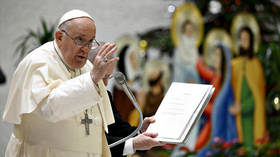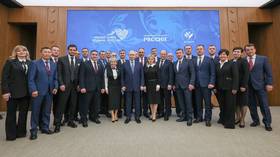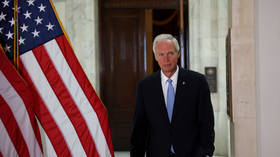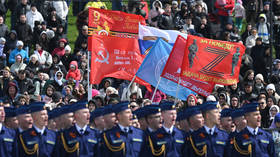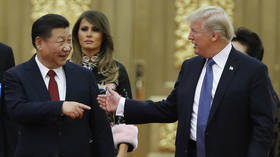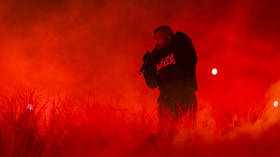‘DNC emails could have come from internal leak - not Russia hackers’
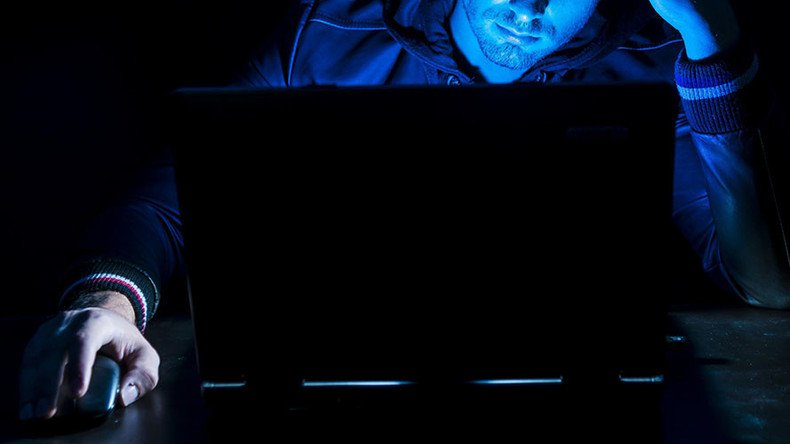
There is no sourced information in the US intel report alleging Russian involvement in hacking DNC offices, says retired CIA official Larry Johnson. Former CIA director James Woolsey, and MI5 officer turned whistleblower Annie Machon, also joined.
In live debates hosted by RT on Monday, Woolsey, Johnson and Machon gave their expert opinions on the Office of the Director of National Intelligence (ODNI) report entitled “Assessing Russian Activities and Intentions in Recent US Elections,” which was released on January 6.
The unclassified ODNI report was anticipated to reveal the full scope of Russian involvement in the DNC leaks and provide evidence supporting serious claims made by the US intelligence community.
Instead, the report has proven to be wanting in content, with WikiLeaks editor Julian Assange saying it has “zero evidentiary weight.”
RT: Mr. Woolsey, throughout this damning report we see the words 'high confidence'. But it also says “high confidence in a judgment does not imply that the assessment is a fact or a certainty; such judgments may be wrong.” So does this report, in fact, prove anything at all?
James Woolsey: Not to prove a certainty can still be very useful. As far as I am concerned, there is no certainly in most intelligence. So I think it is really a kind of debating trick to say that since it is not certain it is worthless.
Report claims Russia’s effort was the 'boldest yet' in US but was built on KGB activities during the Cold War https://t.co/GTHIpBzCXtpic.twitter.com/UT02xotp32
— RT America (@RT_America) 7 января 2017 г.
RT:The most notorious example of US intelligence using the word 'high confidence' was back in 2003 with Iraq's alleged weapons of mass destruction - as we remember it all ended up in an invasion, however, no weapons of mass destruction were found. Could we be seeing the same thing all over again?
JW: Actually, weapons of mass destruction of two of the three kinds were found. The chemical weapons, the three kinds of weapons of mass destruction in our terminology, which I think was originally a Soviet agitprop phrase: chemical, bacteriological and nuclear. Chemical weapons were absolutely found – Saddam [Hussein] used them against the Kurds. Biological weapons were well-known – their location, because Saddam’s brother-in-law was the head of the biological weapons program and he defected to us. The ones that were not there were nuclear. But any parsing of the language would make clear what I have said.
RT: Annie, what do you make of the claims presented in this report?
Annie Machon: Well, it seems very ‘intelligence-light,’ shall we say. They are going to claim that they need to cut out the actual smoking gun, the evidence from this report. I don’t think anyone would be surprised at the depth of the penetration of the internet, the gathering of information that is done across the internet. As the former technical director of the NSA [William Binney] the whistleblower has said publically many times: if indeed there had been hacking, there would be traces that could be found. The fact that those traces have not been found - have not been reported without any particular scientific methodology behind it - does make the report very evidence light. Also, there has been a lot of other information coming out as well, which does indicate this could be a leak inside, rather than an external attack from outside.
How #RT became the star of #CIA, #FBI & #NSA's anticlimactic ‘big reveal’ (Op-Ed) https://t.co/qvEUV343LFpic.twitter.com/Ikg3AyHkWq
— RT (@RT_com) 8 января 2017 г.
RT: On the other hand, American Intelligence services have vast resources and experience - surely, staff must care about their reputations enough not to make claims that they believe to be wrong?
Larry Johnson: I would just encourage all of your viewers to go back and pull the 2002 white paper that was produced based upon the National Intelligence estimate. Read through that – you will see from an intelligence standpoint, how evidence is presented. And while Director Woolsey is correct that you don’t want to divulge sources and methods, there are a variety of ways that you can identify or at least phrase a source. You say, for example, “according to multiple, reliable sources with known access”… There is a way to phrase it, but you can at least look that the 2002 document and see that there is page, upon page, upon page of evidence. It turned out that most of it was either misleading or misunderstood. So just the fact that you can just source evidence doesn’t make something right.
What is striking about this report that was issued on Friday: not one shred of evidence. As a former analyst, and if I were detailed to the cyber account, I would have been following every day the information that would come out in intelligence reports – wherever it was from the NSA, or from a human source, or from DIA, or from State Department reporting. And at some point in that process, we should have seen either an electronic or human source that said: “Vladimir Putin or someone in his government had directed the cyber-command in Russia to start a program or a plan to collect." We never saw any of that. There is not one sourced information in that report. That is what makes it ridiculous.
The statements, views and opinions expressed in this column are solely those of the author and do not necessarily represent those of RT.



